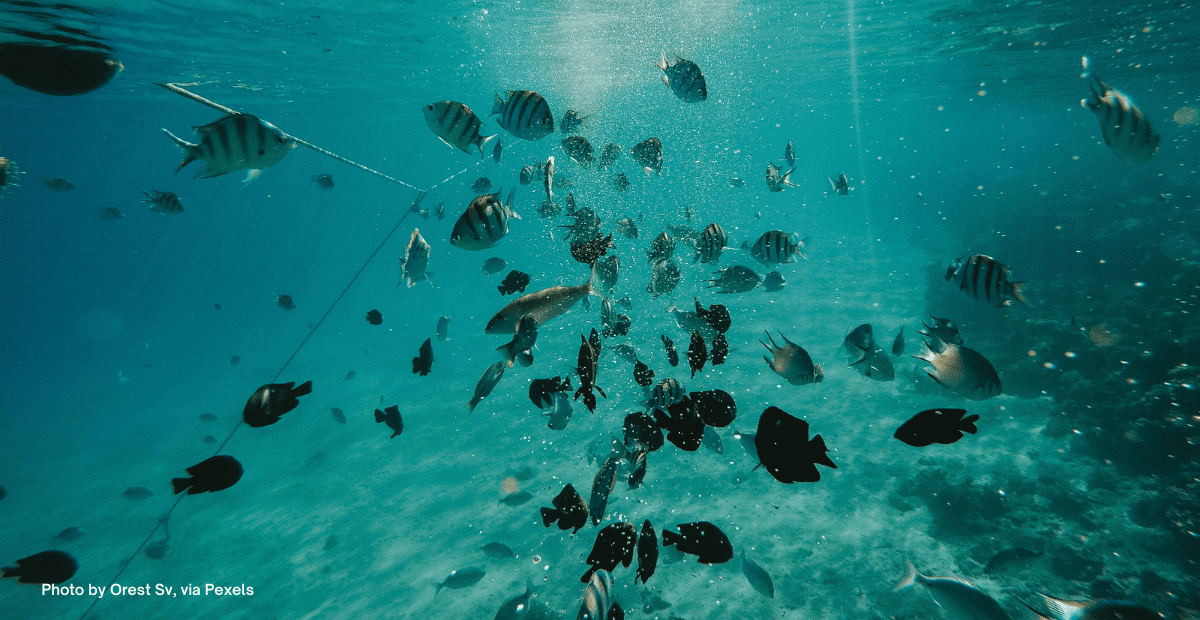You finally landed in the place to answer the question: can fish drown?
The idea of fish drowning may seem counterintuitive, given that they live and breathe underwater. However, the intricate world of marine creatures holds surprising answers to this seemingly straightforward question. In this blog post, we will delve into the factors that influence a fish’s ability to survive underwater and how external conditions, such as climate change, can impact their well-being.
Can Fish Drown?
Drowning, as defined by Collins Concise Dictionary, involves dying or killing by immersion in liquid. By this definition, fish cannot drown. However, they can face suffocation when the dissolved oxygen levels in freshwater become inadequate. This situation may arise due to eutrophication, drought, or even damage to their gills from various factors such as fishing equipment or encounters with predators.
Can fish suffocate underwater?
Yes. One way they can suffocate underwater is related to movement. Many fish, like sharks, need to swim constantly to ensure water flows over their gills, facilitating oxygen absorption. The removal of a shark’s fins, often for shark fin soup, renders them unable to swim, leading to suffocation. On the other hand, some fish, like nurse sharks, skates, and rays, can pump water through their mouths and over their gills, allowing them to stop swimming without suffocating.

This variance in respiratory strategies underscores the complexity of fish survival mechanisms, highlighting the need for a nuanced understanding of conservation efforts and mitigating human-induced stressors on marine life.
Can Climate Change make Fish suffocate underwater?
Actually, yes. Warming ocean temperatures pose a significant threat to fish survival. As the temperature rises, the oxygen levels in the water decrease, leading to potential suffocation, as explained by Professor Martin Grosell from the University of Miami Rosenstiel School of Marine, Atmospheric, and Earth Science. Furthermore, he emphasizes that fish can face multiple stressors during high temperatures, including high salinity and the release of respiratory toxicants like sulfides.
The impact of higher temperatures extends beyond oxygen levels, affecting the metabolic rate of fish. M. Danielle McDonald, a professor of marine biology and ecology, explains that fish need to consume more oxygen and energy to survive in warmer waters.
Warming oceans

In recent times, the warming of ocean waters, reaching temperatures of at least 80 degrees Fahrenheit, has become the ideal fuel for the formation of powerful storms such as Andrew, Katrina, and Ian. However, this increase in ocean temperature poses a severe threat to certain fish species that inhabit the world’s oceans. The Atlantic Ocean and Gulf of Mexico have experienced record-high temperatures, surpassing 88 degrees in August. Researchers from the National Oceanic and Atmospheric Administration (NOAA) have been monitoring a consistent rise in ocean temperatures since April, coinciding with reports of thousands of dead fish washing ashore in Florida coastal areas and along the Texas Gulf Coast.
Positively, Professor McDonald emphasizes the variability in fish species’ tolerance to higher temperatures, some fish species demonstrate physiological adaptations to tolerate higher temperatures, while others face challenges in acclimating. Fish in variable environments, like those in Biscayne Bay or estuaries, tend to have greater tolerance to environmental changes than those in stable open ocean environments. However, the overarching concern is the impact of climate change on global fish populations, with warmer and oxygen-deprived oceans affecting growth, reproduction, and activity levels.
What do warm oceans, a product of climate change, mean to fish survival?
With climate change causing warmer and oxygen-deprived oceans, fish growth, reproduction, and activity levels are at risk. The Global Oxygen Network warns that low-oxygen areas in the open ocean have increased, and by 2080, about 70% of global oceans may experience noticeable oxygen losses.
Despite the difficulty in predicting the extent of marine heat waves on fish populations, the frequency and severity of these events are on the rise, leading to potential cumulative effects in conjunction with other stressors. Observations of certain fish species migrating from warming to cooler waters indicate a response to deoxygenation, yet the consensus among fish physiologists is that fish will likely become smaller as the world’s oceans continue to warm.
Conclusion
In conclusion, while fish cannot technically drown, they face various challenges, from suffocation due to low oxygen levels to the impacts of climate change on their habitats. Understanding these intricacies is crucial for conservation efforts and addressing the growing threats to marine life in our rapidly changing world.

